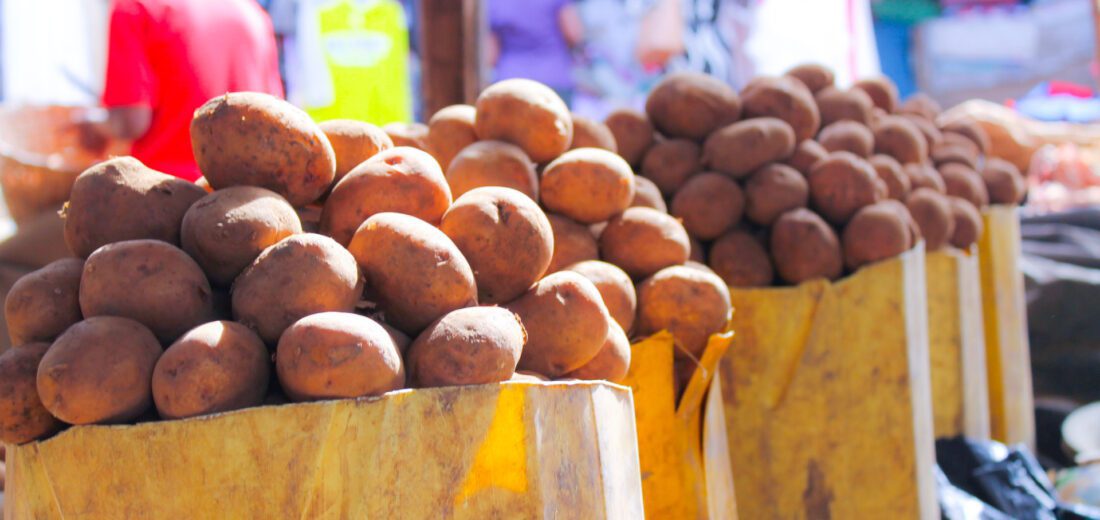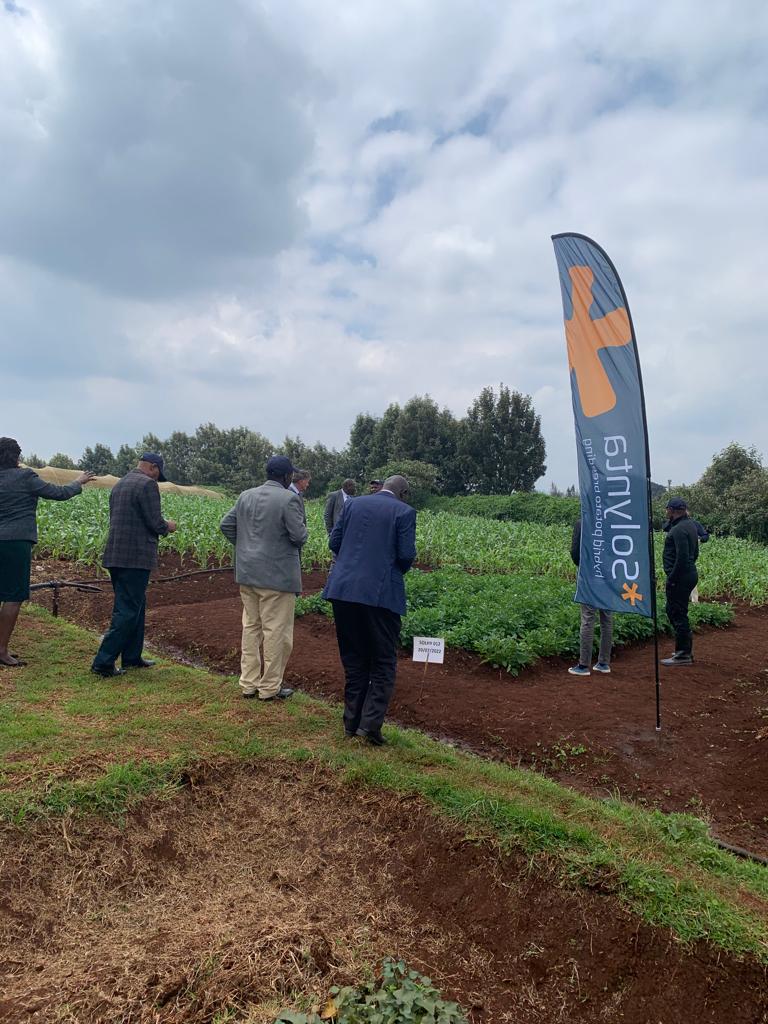
Hybrid Potatoes: A Possible Solution for Sustainable Farming and Food Security in Africa
This year saw the publication of a book about the hybrid potato. Its authors believe this breeding technique will help increase Africa’s food security. But the question remains; will and can the hybrid potato help increase food security in Africa? Vice Versa Global talks to Wachira Kaguongo, Chief Executive Officer of the National Potato Council of Kenya (NPCK), and Gildemacher, a potato expert at KIT Royal Tropical Institute.
A groundbreaking potato hybrid is currently under development in Africa, heralding immense possibilities. This resilient and adaptable variety offers resistance to climate, pests, and diseases while promising higher yields. Above all, it aims to enhance food security, serving as a beacon of hope for Africa’s future.
According to Kaguongo, the implementation of hybrid breeding techniques will enable the creation of improved potato varieties. These varieties will exhibit enhanced nitrogen and water use efficiency, bolstered resistance to severe potato diseases, and superior quality traits.
“Using less phytochemicals will enable farmers to cultivate more sustainably and adapt to climate change,” he says. “As climate change intensifies, the resulting pressures, especially abiotic stresses, have heightened the need for developing new cultivars to ensure stable yields. This requirement has become increasingly critical to safeguarding agricultural productivity.”

Kaguongo explains that well-adapted, climate-resistant, and pest-resistant potato varieties are needed to obtain high yields in varied environmental circumstances. “The hybrid variety of this well-known crop has enormous potential to help fight hunger and attain food security, particularly in Africa’s agricultural regions. It might also significantly impact the shift to sustainable agriculture,” Gildemacher explains.
He continues by saying that, unlike the tubers (potato seeds) that farmers currently use, hybrid potatoes can be propagated using the True Potato Seed (TPS) produced by the plant’s berries.
Small seed, big impact
Depending on the variety, each plant can produce 5 to 50 berries, with each berry containing 50 to 150 seeds. Gildemacher says TPS seeds are smaller than tomato seeds, allowing for the planting of a one-hectare field with just 25 grams of TPS (equivalent to 62,500 seeds) instead of 2,500 kilograms of potato seed tubers.
Kaguongo adds, “The tubers of common potatoes, which serve as their seeds, are large and pose challenges in terms of transportation, processing, and energy consumption. Using smaller quantities of TPS reduces the carbon footprint of the production system and enables easier transportation. Additionally, it can be stored for longer periods without specialized facilities. Its clean and disease-free nature as a propagation material also offers significant benefits to farmers.”
Although this vision is filled with hope, Gildemacher acknowledges the challenges ahead for both high-tech farmers in Europe and low-tech small farmers in Africa. However, he firmly believes that achieving this transition is not only possible but also potentially transformative.
“It will take a lot of work to reach millions of potato growers in Africa. In order for the hybrid potato to be adopted easily across the nation, government agencies, non-governmental organizations, and the industry need to work together,” he says. Regardless of this challenge, Gildemacher is optimistic that the hybrid potato could trigger an unparalleled boost in potato yields in Africa.
Kaguongo believes that while potato hybrids and the TPS will be a tremendous advantage for all potato growers worldwide, they will have an even greater positive impact in low- to middle-income nations—particularly in sub-Saharan Africa. They offer advantages such as higher yields in remote rural areas and resistance to Phytophthora disease. They also have the potential to create hybrid varieties that are more resilient to climate change.
Although there are yet to be any hybrid potato types on the market, researchers are looking to introduce the first ones soon. This development will aid farmers in cultivating more sustainably and coping with the effects of climate change. “Every place that produces potatoes in the world has promise. The first results are likely to be in Africa, where hybrid seed provides the most added value for small farmers with few resources,” Gildemacher says.

Leave a Reply